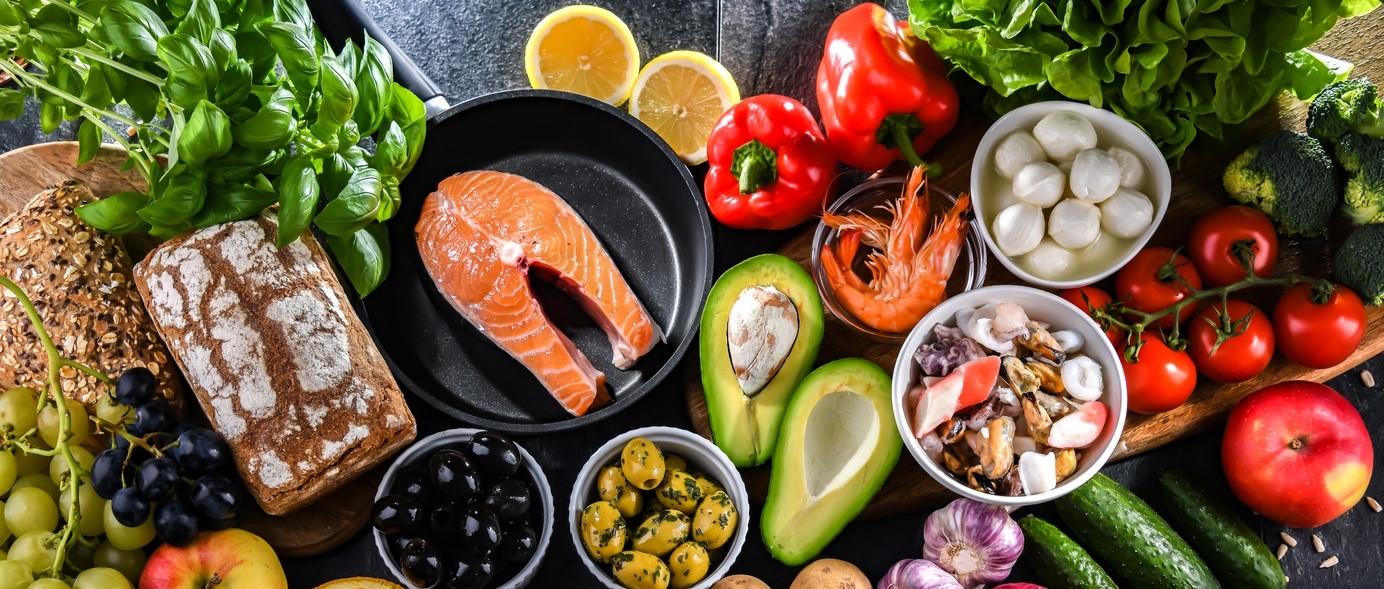
Could your diet be your best anti-ageing secret?
Peer reviewed by Dr Colin Tidy, MRCGPAuthored by Victoria RawOriginally published 13 May 2025
Meets Patient’s editorial guidelines
- DownloadDownload
- Share
- Language
- Discussion
When we think about anti-ageing, our attention often turns to outward signs - fewer wrinkles, a trimmer figure, and hair less touched by grey. However, by prioritising what's happening inside our bodies, we can live a longer, healthier life, both inside and out.
In this article:
The quest for eternal youth is as old as time. From magic potions and mythical vampires to skincare, cosmetics, and plastic surgery, we often chase extraordinary solutions to ageing. However, one of the most powerful anti-ageing secrets may be found simply in what we eat.
Continue reading below
Which nutrients are best for anti-ageing?
Eating a nutrient-rich, balanced diet benefits our health in countless ways. Certain nutrients play a key role in supporting specific functions within your body. As we age, some become especially valuable in helping us stay healthy over time.
Dr Gail Clifford is a Wall Street Journal international best-selling author based in Greater Orlando, USA. She explains that these nutrients help keep your body working well for longer.
"They protect your cells, reduce inflammation, and lower your chance developing of long-term diseases - such as heart disease, cognitive decline, and even some cancers," she says. "When your body has what it needs to repair damage, manage stress, and stay balanced, you are more likely to feel better and stay active as you age."
She emphasises that your focus should not be on reversing ageing, but rather on ageing well - maintaining energy, sharpening your mind, and keeping your body strong for as long as possible.
Which foods might support a longer, healthier life?
Some foods are naturally richer in these nutrients than others. While a balanced diet that includes a variety of nutrients is key to staying in top shape, the foods that promote a longer, healthier life tend to be good for our overall well-being too.
"Whole, plant-forward foods are where it is at," says Clifford. "Eating a variety from the following food groups gives your body a strong nutritional foundation to thrive as you age."
The best foods for healthy ageing
Age-fighting foods to add to your shopping list
Fruits and vegetables - such as leafy greens, colourful veggies and berries are packed with antioxidants, fibre and vitamins.
Fatty fish - such as salmon and sardines are rich in omega-3s, vitamin D and selenium.
Nuts and seeds - give you healthy fats and minerals, such as magnesium and vitamin E.
Wholegrains - offer vitamins and fibre.
Legumes - such as beans and lentils contain fibre, protein, magnesium and polyphenols.
Fermented foods - such as yoghurt, kefir, sauerkraut and kimchi boost your gut health, which supports better digestion and a stronger immune system.
Extra virgin olive oil - is high in polyphenols.
Continue reading below
Which diets might help slow ageing?
Certain diets and eating patterns can help promote longevity and support healthy ageing.
Clifford explains that the Mediterranean diet is the best-known - and most widely studied - of these approaches.
"It is full of fruits, vegetables, olive oil, whole grains, fish, and legumes, and it has been linked to lower rates of heart disease and cognitive decline," she says.
"The DASH diet, which was initially designed to help lower blood pressure, is also excellent for healthy ageing."
Elena Rolt is a registered nutritional therapist from health.miro, UK. She explains that intermittent fasting can also offer health benefits, including potential effects in slowing the ageing process.
"Clinically, intermittent fasting supports metabolic and brain health, lowers inflammation, and improves gut integrity," she says. "It also helps to regulate your hormones related to hunger, satiety, and reproductive function."
She adds that calorie restriction and a fasting-mimicking diet can enhance nutrient-dense foods by boosting their benefits to improve metabolism, reduce inflammation, and support cell renewal
In short, being mindful of the foods we include in our diet is a key step toward staying healthier, and living longer. It works hand in hand with other building blocks of longevity - such as regular exercise, managing stress, and getting enough sleep. While diet isn’t the only factor that supports a long, healthy life, it plays a significant role in a lifestyle that benefits both our inner and outward health.
Patient picks for Diet

Diet and nutrition
What is The Fast 800 diet?
If you're trying to reach a healthy weight, lose tummy fat, reduce your risk of weight-related diseases, or possibly even reverse your type 2 diabetes, The Fast 800 diet may be for you. At its heart, this diet is about helping you move through quick weight loss to sustainable eating that keeps it off long-term. But it's not right for everyone, and there are some safety considerations.
by Amberley Davis

Diet and nutrition
12 trusted diets for your new year goals
Not all New Year diets are fads. We've hand-picked twelve of our most science-backed and sustainable diets, so that you can find the right one to suit your New Year health goals, your lifestyle, and perhaps even your other New Year resolutions.
by Victoria Raw
Continue reading below
Article history
The information on this page is peer reviewed by qualified clinicians.
Next review due: 14 May 2028
13 May 2025 | Originally published
Authored by:
Victoria RawPeer reviewed by
Dr Colin Tidy, MRCGP

Ask, share, connect.
Browse discussions, ask questions, and share experiences across hundreds of health topics.

Feeling unwell?
Assess your symptoms online for free
Sign up to the Patient newsletter
Your weekly dose of clear, trustworthy health advice - written to help you feel informed, confident and in control.
By subscribing you accept our Privacy Policy. You can unsubscribe at any time. We never sell your data.